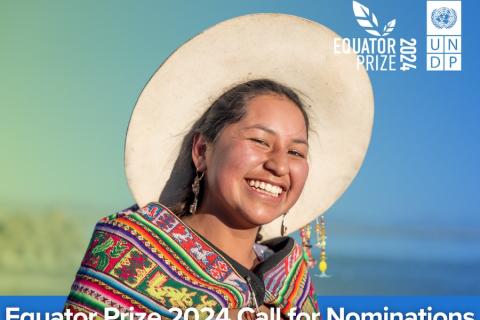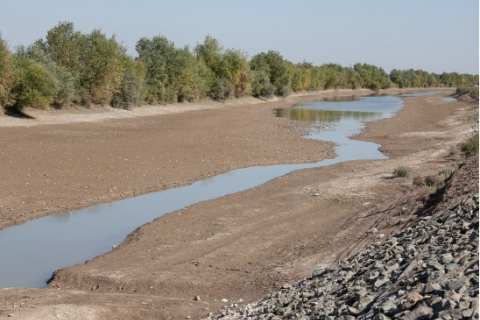Central Asia’s poorest farmers know the value of their land
Oil not charcoal the biggest threat to Congo rainforest, top researcher warns
Traditional farming methods shouldn’t be disregarded
New agricultural methods to build climate change resilience for small-scale farmers will fall flat unless they are deeply respectful of indigenous knowledge systems, research has found.
Mongolia establishes fund for national tree-planting campaign
AKIPRESS.COM - Mongolia has established a fund to support its national tree-planting campaign, Xinhua reported on Thursday citing the presidential press office.
The nationwide campaign to plant at least 1 billion trees by 2030 was officially launched last year as Mongolian President Ukhnaa Khurelsukh told the United Nations General Assembly that the country aims to combat climate change and desertification.
Indonesian government says no to reclassifying oil palm estates as forests
- The Indonesian government has rejected a proposal made by a prominent university to reclassify oil palms as a forest crop.
- The proposal was ostensibly meant to resolve the problem of illegal plantations operating inside forest areas, and would have redefined plantations as forests, and new plantings as reforestation.
- The environment ministry says it has no plans to adopt such a plan because it has its own program, the social forestry scheme, to get local communities to switch from illegal oil palm plantations to more sustainable, and profitable,
Updated SDG Land Tracker makes dispersed land data easily accessible
February 2, 2022 (GLOBAL) — Six years into the establishment of the 17 Sustainable Development Goals (SDGs), the Land Portal is re-examining progress made on land-related SDG indicators. More than a dozen land-related indicators are housed over five SDG goals. The newly updated SDG Land Tracker features completely revised and updated narratives for 13 land-related indicators describing why the indicator is important and how the indicators are measured and monitored.
“Scaling up Land Governance for Food Security in Burkina Faso”: Introducing a new LAND-at-scale project
Nitidae, l’Observatoire National du Foncier Burkina Faso (ONF-BF), Oxfam Burkina Faso and the Netherlands Enterprise & Development Agency (RVO) are excited to announce their partnership for a LAND-at-scale project in Burkina Faso. Starting this year, the project will run for three years focusing on strengthening land governance for women and youth for increased food security, focusing on the Liptako Gourma region.
Burkina Faso’s land challenges
Young environmentalists ‘plant the future’ in Colombia’s Amazon
Felipe “Pipe” Henao is a young environmentalist from the small town of Calamar in southeastern Colombia. At the meeting point of the Amazon and Orinoco basins, it’s an area of abundant biodiversity and an important biological corridor to the Andes mountains.
The forest region was once only occupied by a few nomadic Indigenous communities, but has since seen waves of colonization and conflict, rubber and coca booms, FARC rebel occupation, and most recently, rampant deforestation.
The African Women’s Collaborative for Healthy Food Systems helps build a native seedbank in Lufwanyama District, Zambia
Lufwanyama District in the Copperbelt Province of Zambia, home to many remote communities that completely depend on smallholder agriculture for food and income, is on a mission to collect native seeds to build a seed bank.
The African Women’s Collaborative for Healthy Food Systems emphasizes the importance of local, agroecological, and equitable food systems, and raises awareness of peasant and indigenous women’s important contributions to food sovereignty and food justice, particularly during the COVID-19 crisis.
“Boosting local capacity to manage land conflicts and protect customary rights” – Introducing the LAND-at-scale project in Mali
The Netherlands Agency for Enterprise and Development (RVO) is pleased to announce its collaboration with the Embassy of the Kingdom of the Netherlands (EKN) in Bamako, SNV, the Royal Tropical Institute (KIT), the University of Legal and Political Sciences of Bamako and the National Coordination of Peasant Organizations for implementation of a LAND-at-scale project in Mali "Strengthening local capacities to manage land conflicts and protect customary rights". The intervention will run until 2023 and has a budget of €1.3 million.











